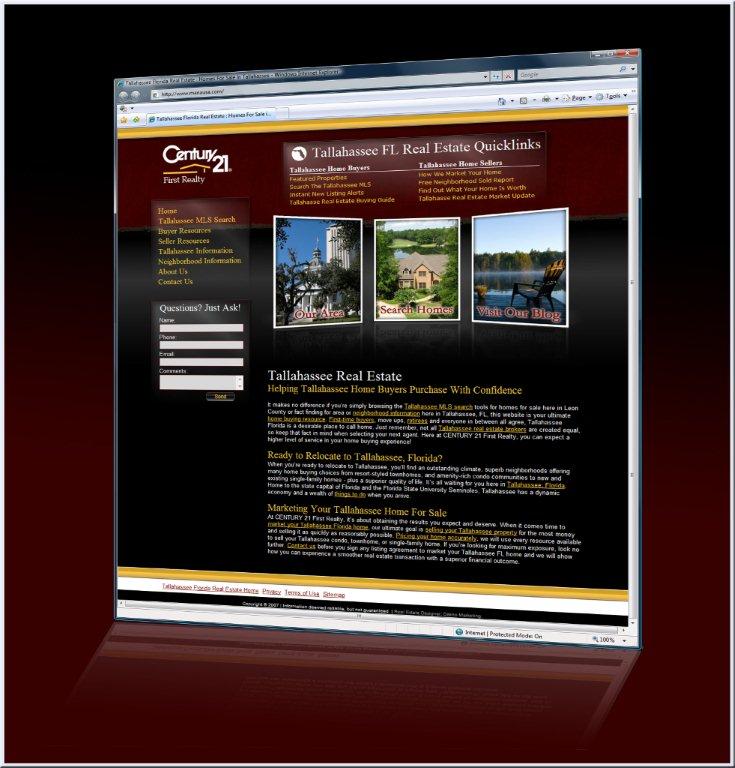This much we know, e-commerce spending is growing at an incredible rate and is expected to top $7 trillion this year… yes – I said trillion with a “T”. Recent studies indicate there are numerous reasons why e-commerce sites are so successful. Shoppers list these reasons for using the Internet to shop:
- It’s so easy!
- The convenience factor
- Competitive cost (savings versus traditional brick & mortar retail outlets)
- Varied selection over traditional retail shops
Other Valid Reasons
Other more obscure but equally powerful motivating factors for the success of e-commerce websites was the rush of adrenalin with the adventure of shopping online and the satisfaction of completing an online purchase. e-Commerce website designers must engage site visitors with tools that give the site visitor the impression they are in total control of their buying experience and “stir” feelings that the consumer is having a brand new buying experience different from their last buying episode.
Poor Website Design = Site Visitor Distrust!
To accomplish any and all of these goals, e-commerce website design must cultivate a feeling of trust on the part of the site visitor. We have heard that site design is actually more important than given credit for especially when feelings of poor site security and unreliability are conveyed as a result of a bad design! The important element that real estate professionals can extract from this post is this…. e-commence websites:
- Make the website feel as thought the experience is all about the consumer. A well-designed website will give the consumer the feeling that they are in full control of the process
- Provide a strong design that will allow the site owner to remain “Anonymous”
- Offer user-friendly navigation
- Are coupled with detailed product information
- Presented in a comfortable design package that makes the site visitor feel at ease are deemed highly productive e-commence portals
These sites will succeed over other sites that offer average usability coupled with so-so design presentation.
Application for Real Estate Professionals?
- Bernice Ross stated it this way in her recent post, “In a study of 1,173 real estate website visitors, 54%
 said that the agent’s picture on the front page of a website interfered with their ability to find what they wanted.” In other words, make your website less about you and more about making your consumer comfortable. Of course, always comply with local MLS board rules, broker rules and clearly state who you are in the footer. Just leave off all your pictures of you and your pets… (unless you target the pet crowd)
said that the agent’s picture on the front page of a website interfered with their ability to find what they wanted.” In other words, make your website less about you and more about making your consumer comfortable. Of course, always comply with local MLS board rules, broker rules and clearly state who you are in the footer. Just leave off all your pictures of you and your pets… (unless you target the pet crowd) - Focus on delivering a website design that creates an atmosphere of trust and delivers a feeling of professionalism. This means you should focus on a website design that makes your site look different from all your competitors. The #1 problem with most real estate website designs is this…. they all look the same!
- Insure the website is very easy to navigate and information can be accessed in 3 clicks or less.
- If we are to learn anything from our e-commerce counterparts it’s this, real estate agent sites must deliver detailed area (product) information (county-city-neighborhood) and offer user-friendly mapping and search tools. Holding site visitors hostage to search is no longer the acceptable method to create lasting client relationships.
Your Feedback?
What have you learned about website design from your experiences as a consumer on e-commerce websites? Be the first to comment!
Helping you design better websites,
Bobby

I certainly can attest that one of the most common mistakes I see on agent’s websites is that they have too large a picture of themselves on the first page. I think it starts from choosing the wrong domain name. Choosing a domain name with your name instead of the area in which you serve makes you focus on the wrong topic. Focus on your area and your customers and watch the leads pour in!
Jamey – In our consultation with potential clients, we always ask if he or she is a “celebrity agent”, meaning they have strong name recognition within their market. If they do, more than likely they have been “in the business” for many years and have built strong personal brand equity with their name. In that case, we recommend they ride the “personal brand” strategy as hard as they can. Of course, it makes for a difficult discussion when it comes time for their exit strategy to possibly sell their book of business. Frankly, we seldom meet agents/brokers who have attained such celebrity status which is why we recommend the course you outline in your comment!